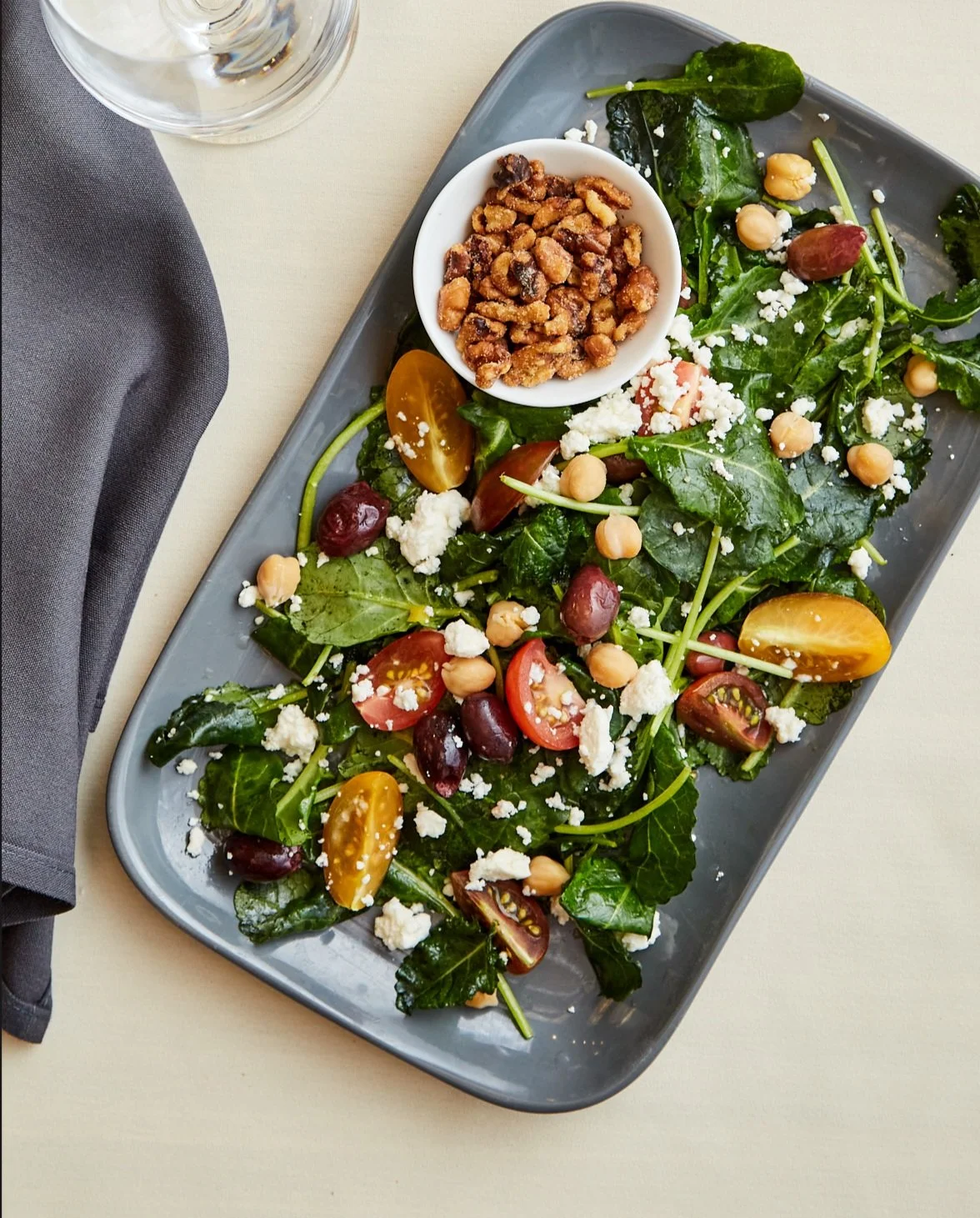Nutrition for Memory Care at SALMON Senior Living
Hummus board with cucumbers, bell peppers, kalamata olives, tomatoes and feta cheese
By Diane Tonelli, OTR/L, MHA, CDP CADDCT, SALMON’s Clinical Director of Memory Care
As Memory Care Director for SALMON Senior Living, I know that careful thought goes into all aspects of our Residents’ daily lives to maximize brain health and reduce the risk of cognitive decline, or dementia. One key element that we focus on is nutrition—one of the most significant ways to reduce risk of dementia.
The relationship between nutrition and memory is a complex one, but it is becoming increasingly clear that what we eat can have a significant impact on our brain health. A diet that is high in processed foods, sugar and unhealthy fats can contribute to inflammation in the brain and damage to brain cells. Conversely, a diet that is rich in fruits, vegetables, whole grains and healthy fats can help to nourish the brain and protect cognitive function.
Diane Tonelli, SALMON’s Clinical Director of Memory Care planning meals with Tina Litwinetz, Manager of Dining Operations, and Chef Frantz Jacotin
A crucial way that nutrition can lower the risk of cognitive decline, or dementia, is by reducing inflammation in the brain. Inflammation is a normal response to injury or infection, but when it becomes chronic, it can damage brain cells. Eating anti-inflammatory foods, such as leafy greens, berries, nuts and fatty fish, can help to reduce inflammation in the brain and support cognitive health.
Other nutrients that support brain health include omega-3 fatty acids found in fatty fish like salmon and sardines, vitamin E, vitamin B12 and folate, all of which can be found in a variety of whole foods including nuts, seeds, leafy greens and fortified cereals, and flavonoids and antioxidants found in a variety of berries and vegetables. Even tea and coffee in moderation can improve mental function and short-term concentration.
At SALMON Senior Living, we partner with local farms to source fresh ingredients and foods that contribute to a brain-healthy diet. With these locally sourced foods, we’re able to carefully develop chef-prepared menus and food options for our Residents that are not only tasty but contribute to overall brain health.
Below is a sample of one of our daily menus—offering a breakfast, lunch, and dinner option:
Three-egg omelet with your choice of onions, mushrooms, spinach, green peppers and Swiss or American cheese
The Willows Salad: Lettuce, tomato, spinach, pecans, craisins, grilled chicken and choice of dressing
Grilled Atlantic salmon topped with a lemon beurre blanc sauce
While there is no one single food or nutrient that can prevent cognitive decline, incorporating a variety of brain-healthy foods into your diet can support brain health. In addition to a healthy diet, it’s important to maintain a healthy weight, get regular exercise, sleep well and manage stress. Consuming a diet good for brain health doesn’t have to be complicated—a general rule of thumb is to fill your plate with colorful foods like whole grains, vegetables, fruits, legumes and nuts.
Nutrition plays a crucial role in brain health, and SALMON Senior Living helps Residents make healthy dietary choices that help reduce cognitive decline. By eating a diet that is rich in anti-inflammatory foods and essential nutrients, you can help to nourish your brain and support cognitive function as you age.
This sponsored article appeared in the Spring 2023 issue.





